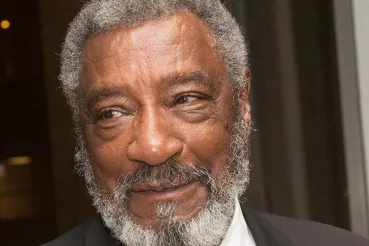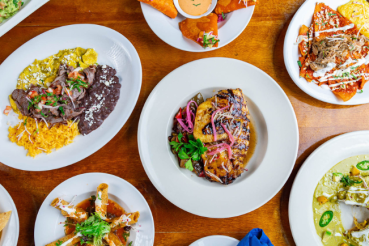Recently in America, we surpassed 500,000 COVID-19-related deaths, leading the world in a pandemic that has disproportionately impacted Black, Latinx and Indigenous communities. In Chicago, we’ve witnessed over 65% of life-preserving vaccinations go to white and wealthy residents, while the disinherited languish in despair.
With all these challenges, some hospitals and public health professionals have asked, “How do we help community members understand the ongoing risks of contracting COVID-19?” And, “What can health care providers do to convince people of color to receive the vaccine?”
I have a better question: How might hospitals and health professionals see themselves differently, so their approach to healing communities of color is rooted in revolutionary love, community self-determination and anti-racism?
To be sure, a growing number of health care organizations are increasingly more aware of racial inequities, and some may recognize their shortcomings and complicity. But recognition is not enough. Whatever “help” comes from the health community must be informed by voices on the ground.
Seventy percent of Black Americans know someone who has died or been hospitalized due to COVID-19. We understand the risks. But the history and impact of institutional health-sponsored violence perpetrated against Black bodies runs deep. Flanked by real or perceived risks on both sides, we hope to trust those with levers of power.
Still, trust must be earned.
Trust requires a comprehensive approach to community wellness, alongside, and not just the push to test and vaccinate. Distrust will calcify if this is not done. Trust us.
Trust requires a commitment to community health infrastructure. There should be FQHCs (federally qualified health/wellness centers) in every Chicago neighborhood crippled by gun violence (the other pandemic) and chronic mental health and drug use disorders.
Trust requires a replication of bold and intersectional models; perhaps like those that create opportunities for youth to be community health ambassadors in their neighborhoods: knocking on doors, conducting community needs assessments and cultivating relationships while being trained and skilled up to pursue opportunities in the health profession.
In Chicago, Rush University Medical Center along with West Side United — a group of health care providers committed to “building a healthier West Side”— have piloted such initiatives, but more hospitals, community-based organizations, public officials and business leaders need to step up.
The ivory tower approach does not work. Hospitals and health professionals must see community empowerment and community health as inextricable.
Shaka King beautifully illustrated this in his recently released historical drama, “Judas and the Black Messiah.” Perhaps the most heart-wrenching and inspiring scene is near the end when Chairman Fred Hampton (embodied by Daniel Kaluuya) finds himself facing five years of imprisonment for trumped-up charges. He’s surrounded by family and friends trying to convince him and Deborah Johnson, who’s 37 weeks pregnant, to flee the country:
“You could be in Havana in less than 24 hours. … They have some of the best doctors in the world.”
“Look, Algeria got Minister Eldridge (Cleaver) … not to mention bungalows by the sea … .”
“Cuba is a hop and a skip away … (and) there’s a network of safe houses headin’ south.”
The exasperated Chairman Fred stops the debate:
“Y’all spendin’ all this time talkin’ about me goin’ to Algerian bungalows, when you need to be talkin’ about how we gonna build this [expletive] medical clinic. You know how many people we can save in five years? With a medical clinic in the middle of the West Side [of Chicago]?”
The heart of Chairman Fred’s philosophy of revolutionary love is on full display. And like most inspiring art, the scene points beyond itself, forcing us to face ourselves, our condition, our possibilities and the ways we might serve one another, not ourselves.
For many young West Garfield Park natives like myself, “building a (expletive) medical clinic” is long overdue.
And if the ultimate vaccine is community and neighborhood health, we all should see the courage, strategies and resources to match.




